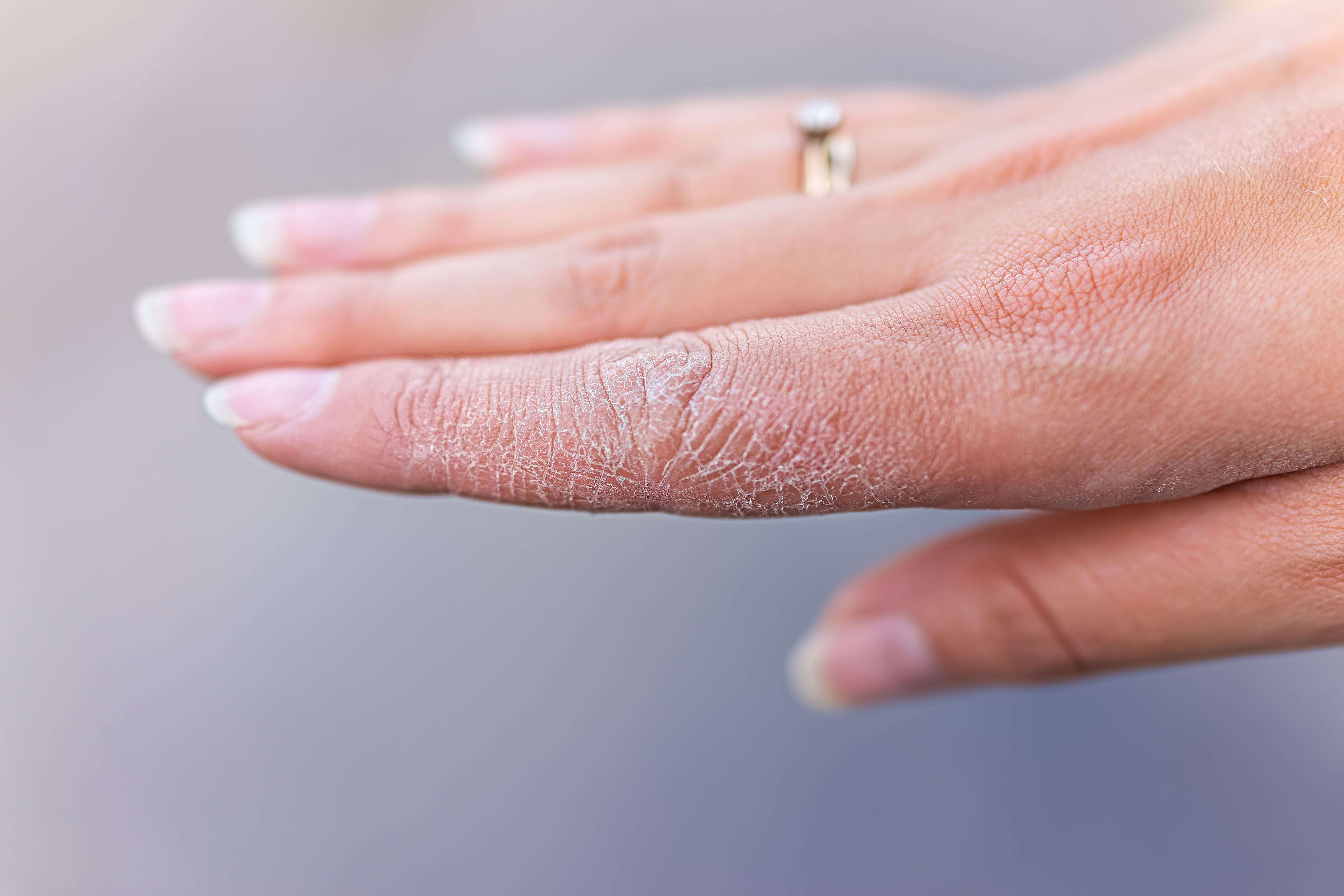- General Dermatology
- Eczema
- Alopecia
- Aesthetics
- Vitiligo
- COVID-19
- Actinic Keratosis
- Precision Medicine and Biologics
- Rare Disease
- Wound Care
- Rosacea
- Psoriasis
- Psoriatic Arthritis
- Atopic Dermatitis
- Melasma
- NP and PA
- Skin Cancer
- Hidradenitis Suppurativa
- Drug Watch
- Pigmentary Disorders
- Acne
- Pediatric Dermatology
- Practice Management
Topical Ruxolitinib Demonstrated Promising Clinical Improvements in Chronic Hand Dermatitis, Study Shows
In a recent study, topical ruxolitinib improved clinical outcomes, itch, and patient quality of life.
In a pioneering study conducted at the University of Rochester Medical Center, researchers evaluated the efficacy of topical ruxolitinib 1.5%, a pan-JAK inhibitor, in recalcitrant chronic hand eczema. The study's findings, published in the Journal of the European Academy of Dermatology and Venereology, revealed that topical ruxolitinib may demonstrate promise in improving clinical symptoms, itch, and patient quality of life in this indication.1
Researchers sought to explore the efficacy of ruxolitinib in chronic hand eczema, noting that it poses a significant burden on patients' quality of life, with a lifetime prevalence of 14.5% and a 1-year prevalence of 9.1%, particularly affecting females and individuals in high-risk occupations.2 Despite the lack of FDA-approved medications, recent research has shed light on potential treatment avenues, including Janus kinase signal transducer and activator of transcription inhibitors.
The open-label trial enrolled 15 adults with chronic hand eczema. Patients were instructed to apply ruxolitinib cream on a twice-daily for a duration of 12 weeks. Clinical assessments, including Investigator Global Assessment (IGA) and Hand Eczema Severity Index (HECSI), were performed at baseline and subsequent visits.
Itch intensity was measured using the Itch Numerical Rating Scale (NRS), and patient-reported outcomes were assessed via the Dermatology Life Quality Index (DLQI) questionnaire and Skindex-mini.
The study yielded promising results, with significant clinical improvement observed as early as 4 weeks and sustained throughout the treatment period.
At 12 weeks, 80% of participants achieved a 2-point reduction in IGA score, and 53% attained IGA treatment success.
HECSI scores demonstrated consistent improvement, with 93% of participants achieving HECSI-50, 86% HECSI-75, and 46% HECSI-90 by the end of the study.
Additionally, itch reduction was substantial, with 83% of participants experiencing at least a 2-point reduction in itch intensity by 12 weeks.
Furthermore, patient-reported outcomes mirrored clinical improvements, highlighting the positive impact of ruxolitinib on patients' perception of their disease severity and quality of life. Ruxolitinib cream was well-tolerated, with no drug-related adverse events reported.
While the study demonstrates the potential of ruxolitinib cream as a therapeutic option for moderate-to-severe chronic hand eczema, several limitations, including the small sample size and open-label design, warrant consideration, according to study authors. Future randomized trials with larger cohorts and diverse populations are necessary to validate these findings and further explore the safety and efficacy of ruxolitinib across different subtypes of chronic hand eczema.
"This is the first study evaluating the efficacy of ruxolitinib 1.5% cream on [chronic hand eczema] and reveals a potential breakthrough therapeutic for a challenging disease," according to Smith et al.
References
- Smith HD, Lally JS, Moy A, Ryan-Wolf J, De Benedetto A. Topical ruxolitinib 1.5% (JAK1/JAK2 inhibitor) improves clinical and patient-reported outcomes in moderate to severe chronic hand dermatitis: Data from a small open-label trial. February 20, 2024. Accessed February 21, 2024. https://doi.org/10.1002/jvc2.381
- Quaade AS, Simonsen AB, Halling AS, Thyssen JP, Johansen JD. Prevalence, incidence, and severity of hand eczema in the general population—a systematic review and meta-analysis. Contact Dermatitis. 2021; 84(6): 361–374.

